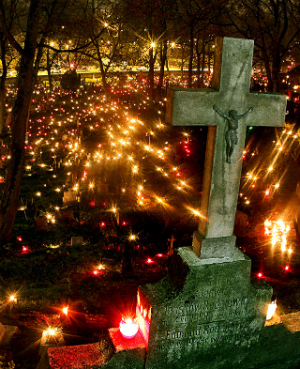 Hi readers, it seems you use Catholic Online a lot; that's great! It's a little awkward to ask, but we need your help. If you have already donated, we sincerely thank you. We're not salespeople, but we depend on donations averaging $14.76 and fewer than 1% of readers give. If you donate just $5.00, the price of your coffee, Catholic Online School could keep thriving. Thank you. Help Now >
Hi readers, it seems you use Catholic Online a lot; that's great! It's a little awkward to ask, but we need your help. If you have already donated, we sincerely thank you. We're not salespeople, but we depend on donations averaging $14.76 and fewer than 1% of readers give. If you donate just $5.00, the price of your coffee, Catholic Online School could keep thriving. Thank you. Help Now >
Antonio Ferreira
FREE Catholic Classes
A poet, important both for his lyric and his dramatic compositions, b. at Lisbon, Portugal, in 1528; d. there of the plague in 1569. He studied law at Coimbra, where, however, he gave no less ateention to belles-letteres than to legal codes,ardently reading the poetry of classic antiquity. Successful in his chosen profession, he became a judge of the Supreme Court at Lisbon, and enjoyed close relations with eminent personages of the court of John III. Ferreira stands apart from the great majority of the Portuguese poets of his time in that he never used Spanish, but wrote constantly in his native language. Yet he is to be classed with the reformers of literary taste, for, like Sâ de Miranda, he abandoned the old native forms to further the movement of the Renaissance. He manifested a decided interest in the Italian lyric measures, already given some elaboration by Sâ de Miranda, and displayed some skill in the use of the hendecasyllable. The sonnet, the elegy, the idyll, the verse epistle, the ode, and kindred forms he cultivated with a certain felicity, revealing not only his study of the Italian Renaissance poets, but also a good acquaintance with the Greek and Latin masters.
It is by his dramatic endeavours that he attained to greatest prominence, for his tragedy "Ines de Castro", in particular is regarded as one of the chief monuments of Portughese literature. He began his work on the drama while still a student at Coimbra, writing there for his own amusement his first comedy, "Bristo", dealing with the old classic theme of lost children and later agnitions, which was often utilized for the stage of the Renaissance and has been made familiar by Shakespeare. Much improvement in dramatic technique is evinced by his second comedy, "O. Cioso", which treats realistically the figure of a jealous husband. It is considered as the earliest character-comedy in modern Europe. Written in prose, it exhibits a clever use of dialogue and has really comical scenes. None of the compositions of Ferreira appeared in print during his lifetime and the first edition of his two comedies is that of 1622. On English translation of the "Cioso" made by Musgrave was published in 1825. His tragedy, "Inés de Casro", imitates in its form the models of ancient Greek literature, and shows ltalian influence in its use of blank verse, but it owes its suject-matter to native Portuguese history, concerning itself with the love of King Pedro for the beautiful for the Ines de Castro, an incident which has also been spendidly treated by Camões in his "Lusiades", and has furnished the theme for at least ten Portughese and four Spanish plays, and over a score of compositions in foreign languages. If tested by the requirements of the theatre, the play is doubtless far frorn perfect, but the purity of its style and diction ensures its popularity with its author's compatriots. It was rendered into English by Musgrave in 1826. The rather free Spanish version of 1577 was made on the basis of a manuscript copy of the Portughese original, for the first Portughese printed edition is of 1587.
Join the Movement
When you sign up below, you don't just join an email list - you're joining an entire movement for Free world class Catholic education.
-

-
Mysteries of the Rosary
-
St. Faustina Kowalska
-
Litany of the Blessed Virgin Mary
-
Saint of the Day for Wednesday, Oct 4th, 2023
-
Popular Saints
-
St. Francis of Assisi
-
Bible
-
Female / Women Saints
-
7 Morning Prayers you need to get your day started with God
-
Litany of the Blessed Virgin Mary
All Saints' Day, Halloween and All Souls' Day: What's the difference?
-

Should Christians Celebrate Halloween?
-

Since when did Halloween become a Christian holiday?
-
ADORABLE: A Little Boy's Heartfelt Lunchtime Prayer
-
Scientists Decode 3,000-Year-Old Babylonian Tablet, Revealing Potential Location of Noah's Ark
Daily Catholic
 Daily Readings for Friday, November 01, 2024
Daily Readings for Friday, November 01, 2024 St. Valentine Berrio-Ochoa: Saint of the Day for Friday, November 01, 2024
St. Valentine Berrio-Ochoa: Saint of the Day for Friday, November 01, 2024 Litany of the Saints: Prayer of the Day for Friday, November 01, 2024
Litany of the Saints: Prayer of the Day for Friday, November 01, 2024- Daily Readings for Thursday, October 31, 2024
- St. Wolfgang: Saint of the Day for Thursday, October 31, 2024
- Memorare: Prayer of the Day for Thursday, October 31, 2024
![]()
Copyright 2024 Catholic Online. All materials contained on this site, whether written, audible or visual are the exclusive property of Catholic Online and are protected under U.S. and International copyright laws, © Copyright 2024 Catholic Online. Any unauthorized use, without prior written consent of Catholic Online is strictly forbidden and prohibited.
Catholic Online is a Project of Your Catholic Voice Foundation, a Not-for-Profit Corporation. Your Catholic Voice Foundation has been granted a recognition of tax exemption under Section 501(c)(3) of the Internal Revenue Code. Federal Tax Identification Number: 81-0596847. Your gift is tax-deductible as allowed by law.






 Daily Readings for Friday, November 01, 2024
Daily Readings for Friday, November 01, 2024 St. Valentine Berrio-Ochoa: Saint of the Day for Friday, November 01, 2024
St. Valentine Berrio-Ochoa: Saint of the Day for Friday, November 01, 2024 Litany of the Saints: Prayer of the Day for Friday, November 01, 2024
Litany of the Saints: Prayer of the Day for Friday, November 01, 2024

